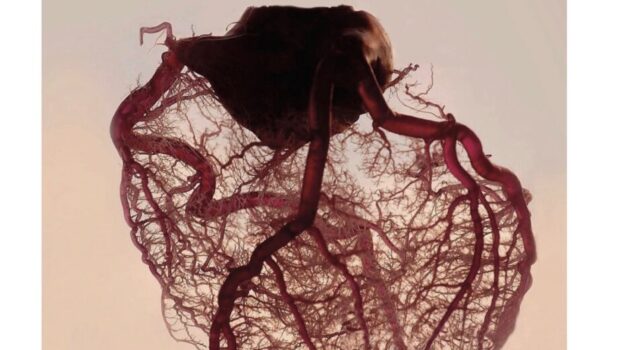Apocryphal
Apócrifos
Tedi López Mills
From the Apocryphal series*
English versions by Tanya Huntington
8.
No one can say I didn’t tell you so when all else fails, no one can lodge a complaint at the dusty window after the fact: “they were going to use another color for this, something more authentic than unpolished sheets of copper or tin,” to give an example, although I’d rather not: the copy of the copy of a pretext I can no longer recall. It’s already understood. What else is to be done with the bauble of rationale, the impeccable way it combines with certain arguments? For lack of a better cause, consequences may be used as triggers; they only work because we seldom or ever pay attention to fresh annoyances that must be assimilated as if they were our own, all the while crying out that it is too much to bear. My sense of pity doesn’t go so far as the sidewalk of my most hostile neighbor, it can’t so much as cross the road. I was going to ask you not to rub that patch of skin the wrong way, but then the Lady intervened in her singsong voice: oh, the cruel passage of discarded finery. A melody from yesteryear, she explained, that also mentions bees, and summers piled up like recyclable sheets of paper. Sighing, the Lady inquired after our hoarse throats: what were you up to last night? We climbed and climbed the narrow staircase, the body steadily peeling away from its mold every time. Or something along those lines. In the dark, our elbows were symbolically excessive. But how could we break this to the Lady? She recites speeches and prayers, she takes care of us, feeds us, teaches us. We shall boast of our creations to her: the parades along the riverside, the rites of buffoons who inflate balloons, the franchises in the suburbs, and the enterprises we’ve planned with bills and coins. The Lady will no longer have to scrape the bottoms of drawers, searching for loose change! This we will swear to her today, once the table has been set: the checkered cloth, the right china, the unavoidable absences, the instructions at hand: never any affection wasted.
[Oh, the cruel passage of discarded finery!]
10.
I could not do what I did until I did it. I could not give what I gave until I gave it. Neither logically nor chronologically: your choice. Today, dimensions lose their density once they cross paths with household timetables. Suddenly, the most figurative landscape is known as world, region, terrain; or is this but a whim of chance? They warn me that a rough season draws near: strident voices, libertarian impositions, instructions, sheets of metal and weeds covered with tires to simulate rooftops. I remain silent. I know my stubbornness has prevented me from reaching the fever pitch of my comrades. I know also that it is necessary to give indulgences in order to receive them. This echo is not akin to any music under heaven that singles out sounds. And the fever pitch of one’s fellow man tends to repeat itself if no one comes to the rescue. A woman chides me over the telephone. A man dies in another home. A cat sticks its nose in. A weak character from a story substitutes one corpse with another in order to save a soul left faceless, but alive. Where was I? If conditions were ripe, I would speak to you of the pale body I caught a glimpse of in a crook of the skylight we composed in a corner of our home. The Lady forbade us from going up to the attic that day. Because of all the rats and rust and toys under the chiaroscuro of the dirty lightbulb. Her message was a double entendre, one we failed to understand.
[My stubbornness has prevented me from reaching the fever pitch of my comrades]
18.
It was not an acropolis, it was not a polis, it was not a metropolis, it was not a syllabic game, it was not a platform, it was not an unevenness of rivers, it was not a faux pas, it was not a partition adjoining the marble corner. There were no signs, no billboards, no beltways, no interstates; several vultures sat on the barbed wire and the effect was dramatic, no doubt, but the people down there went on with their errands or shopping or were merely distracted while crossing one street, or the next. They warned us we would not be able to go anywhere until after the news was broadcast. They explained that tomorrow, there would be no one to clean up the mess or take out the trash or be in charge of dispelling rumors. As if guilt had more to be ashamed of than the act that spawned it. That is what you said to me in your confusion: one dead boy and five innocents, even though they were the ones who killed him. Stories of tenderness repeated alongside others, mutilated until they resemble propaganda. As I examine the maps and the dotted lines along every trench, I try to remember the whole story. Everyone killed everyone else. We are all responsible, and therefore we are all absolved. This is what’s known as fatality. There are impeccable theologies that require no gods, where savage gentlemen seek diversion beneath the light they shed, where the experience of said chronicles is not cumulative. My hand brings them together out of inertia; yours pushes them away. These are the risks. You still haven’t told me how many words are left.
[Where savage gentlemen seek diversion beneath the light they shed]
*The phrases that appear as footnotes, in italics and between brackets were taken from the Illuminations of Arthur Rimbaud.
 Tedi López Mills is an internationally recognized Mexican poet. She has received the Efraín Huerta Award, the National Literature Award, and the Xavier Villaurrutia Prize, among others. Her works Death on Rua Augusta and Against the Current are available in English, translated by David Shook and Wendy Burk, respectively.
Tedi López Mills is an internationally recognized Mexican poet. She has received the Efraín Huerta Award, the National Literature Award, and the Xavier Villaurrutia Prize, among others. Her works Death on Rua Augusta and Against the Current are available in English, translated by David Shook and Wendy Burk, respectively.
©Literal Magazine
De la serie Apócrifos*
8.
Que no digan que no les dije cuando falle todo, que no reclamen después en la ventanilla opaca: “a esto le iban a poner otro color, iba a ser de verdad, no pura lámina de cobre, estaño sin lustre”, por dar ejemplos, aunque no quiero darlos, copias de copias de un pretexto que no recuerdo. ¿Se comprende o qué se hace con el adorno de las razones, su encaje impecable en algunos argumentos? A falta de causas pueden usarse las consecuencias como disparadores; funcionan porque nadie presta atención o sólo a veces frente a las nuevas molestias que hay que incorporar como si fueran propias, gritando que ya no se aguanta. Mi piedad no llega a la banqueta de mi vecino más agresivo, no cruza la avenida. Te iba a pedir que no rozaras ese pedazo de piel a contrapelo. Pero intervino la Señora canturreando: ay, el paso cruel de los oropeles, una melodía de antaño, nos explicó, en la que también se mencionaban abejas, veranos apilados como papeles reciclables. Suspirando, la Señora indagó acerca de nuestra ronquera: ¿qué hicieron anoche? Subimos y subimos por la escalera estrecha cada vez que el cuerpo se fue desprendiendo de su horma. O algo así. Sobraron simbólicamente nuestros codos en la penumbra. Pero cómo revelárselo a la Señora; ella pronuncia discursos, plegarias, nos cuida, nos alimenta, nos enseña. Le presumiremos nuestras creaciones: los desfiles en la ribera, el rito de los bufones inflando globos, las franquicias en los suburbios y los negocios que hemos planeado, con billetes y centavos. ¡Ya no rascará la Señora el fondo de sus cajones buscando monedas! Eso le juraremos hoy cuando esté puesta la mesa: mantel a cuadros, los platos correctos, las ausencias debidas, el instructivo a la mano: jamás ningún cariño en balde.
[¡El paso cruel de los oropeles!]
10.
No pude hacer lo que hice antes de hacerlo. No pude dar lo que di antes de darlo. Por lógica o por cronología: tú elige. Hoy pierden densidad las dimensiones cuando se cruzan con los tiempos caseros. De repente el paisaje más figurativo se denomina mundo, región, terruño; o es sólo una maña del azar. Me avisan que se aproxima una temporada áspera: voces estridentes, imposiciones libertarias, instrucciones, hierbajos y láminas cubiertas de llantas para simular techos. No respondo. Sé que mi testarudez me impidió alcanzar el diapasón de los camaradas. Sé también que es necesario repartir indulgencias para ganarlas. Ese eco no equivale a música bajo ningún cielo que particularice sonidos. Y el diapasón ajeno tiende a repetirse si nadie lo rescata. Una mujer me regaña por teléfono. Un hombre muere en otra casa. Un gato se inmiscuye. El personaje débil de una historia sustituye a un cadáver con otro para salvar al que siguió vivo sin cara. ¿Dónde me quedé? Si las condiciones fueran propicias, te hablaría del cuerpo pálido que vi de reojo en una esquina del tragaluz que inventamos en el rincón de la casa. La Señora nos prohibió subir al ático ese día. Por las ratas y el óxido y los juguetes bajo el claroscuro del foco sucio. El mensaje era de doble sentido. Pero no lo entendimos.
[Mi testarudez me impidió alcanzar el diapasón de los camaradas]
18.
No era una acrópolis, no era una polis, no era una metrópoli, no era un juego silábico, no era una plataforma, no era un desnivel de ríos, no era un desliz en los modales, no era un tabique contra la esquina del mármol. No hubo señales, no hubo espectaculares, no hubo periféricos, no hubo carreteras; algunos buitres descansaban en los alambres y el efecto era dramático, sin duda, pero la gente por abajo siguió con sus rondas o sus compras o meramente se distrajo entre cruzar una calle o la otra. Las personas nos avisaron que no se podría ir a ningún lugar hasta que no terminara de difundirse la noticia. Nos explicaron que nadie mañana limpiaría los restos ni sacaría la basura ni se haría cargo de dispersar los rumores. Como si la culpa tuviera más cola que el hecho que la genera. Eso me dijiste confusamente: un niño muerto y cinco inocentes aunque lo hayan matado. Las historias de la ternura que se repiten junto a los mutilados hasta que parecen propaganda. Cuando examino los mapas y las líneas punteadas de cada trinchera intento recordar la historia completa. Todos mataron a todos. Todos somos responsables y todos por lo tanto quedamos absueltos. Se llama fatalidad. Hay teologías impecables que no requieren de dioses, donde los gentilhombres salvajes cazan sus crónicas bajo la luz que se ha creado y donde la experiencia de esas crónicas no es acumulativa. Mi mano las junta por inercia; la tuya las avienta. Son los riesgos. No me has dicho cuántas palabras nos quedan.
[Donde los gentilhombres salvajes cazan sus crónicas bajo la luz que se ha creado]
*Las frases a pie de página, en cursivas y entre corchetes provienen de las Iluminaciones de Arthur Rimbaud.
 Tedi López Mills. Su trayectoria poética ha sido reconocida a nivel internacional. Ha sido reconocida con el Premio Nacional de Poesía Efraín Huerta, el Premio Nacional de Literatura José Fuentes Mares, el Premio Xavier Villaurrutia y el Premio de Narrativa Antonin Artaud entre otros.
Tedi López Mills. Su trayectoria poética ha sido reconocida a nivel internacional. Ha sido reconocida con el Premio Nacional de Poesía Efraín Huerta, el Premio Nacional de Literatura José Fuentes Mares, el Premio Xavier Villaurrutia y el Premio de Narrativa Antonin Artaud entre otros.
©Literal Publishing. Queda prohibida la reproducción total o parcial de esta publicación. Toda forma de utilización no autorizada será perseguida con lo establecido en la ley federal del derecho de autor.
.










